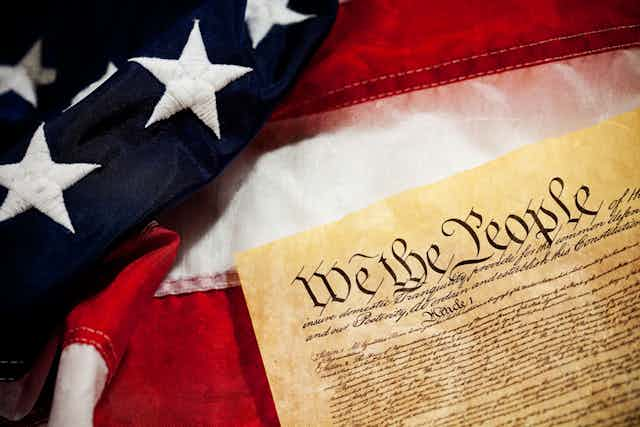Merseyside elected its first metro mayor in May. Steve Rotheram will now enjoy powers to integrate healthcare, housing, transportation and education among the area’s local councils. But he is taking office in a turbulent period which has seen the UK engulfed in the fallout from the 2008 economic crash, a migration crisis and last but not least, Brexit.
As a Liverpudlian and historian, I hope that our new metro mayor will take note of the lessons of history. One example I encourage him to consider is Liverpool during the American Revolutionary era (1763-1783). If Mayor Rotheram learns these lessons, then he may well succeed in his new post.
Granted, there are considerable differences between the late 18th century and the early 21st century. During the Georgian period, Liverpool had socio-economic ties to Britain’s emerging empire in the Americas, Africa and Asia.
Consequently, Liverpool was often termed the “second city of empire” and its status as a port town ensured that there were sizeable opportunities for labour in the docking and shipping sectors. Equally, through a series of canals and turnpikes, Georgian Liverpool enjoyed ties to its industrialising hinterland, which was famed for processing Cheshire Salt and using Lancastrian coal for manufacturing purposes. In contrast, there is considerably less demand for manual labour on Merseyside’s docks in 2017 thanks to containerisation (freight transport) and mechanisation.
But there is at least one thing that both periods have in common – they were eras of great change. During the 1760s and 1770s, Britain and its American colonies clashed over politics and economic policy, which resulted in the bloody War of Independence. By 1783, London was forced to acknowledge the break-up of its North American empire and the birth of the United States. In 2017, the British government is taking steps that will see Britain formally end its 40-year membership of the EEC/EU. Brexit was prompted by a national referendum in 2016, in which 51.9% of the British electorate voted to leave the EU.

There are other parallels between the American Revolutionary period and Brexit. Back in the early-1780s, it was feared that the loss of America would weaken Britain’s “Great Power” status and encourage further separatist movements within the empire – notably the West Indies and Ireland.
Today, many of these issues are still relevant. As a result of Brexit, the Scottish government is calling for a second independence referendum from the UK. There is also renewed debate over Britain’s position in the world. On the one hand, those who wanted to remain in the EU argue that Brexit will diminish British influence in Europe and beyond. In contrast, the Leave camp stress that if Britain withdraws from the EU then the UK will be free to trade with the whole world and take advantage of new opportunities.
Networking and more networking
In such circumstances, how did the 18th-century Liverpool lobby (comprised of local MPs, councillors, mayors, merchants and landed gentry) respond to the challenges of the American Revolution? And are there any lessons for the new metro mayor to take note of in Brexit Britain? In short, yes.
During the 1770s and 1780s, Sir William Meredith (one of Liverpool’s MPs) was frequently at loggerheads with local councillors. The latter regarded their representative in Westminster as untrustworthy and hence tried to unseat Meredith at the polls. This created a divided team, and arguably yielded few positive results. Hence, for a lobby to be effective it must be unified. This is a basic lesson that the new metro mayor needs to heed, as he interacts with incumbent MPs, councillors, businesses and other mayors in the UK.
In the 18th century, the provincial towns of Liverpool and Bristol were also commercial rivals so both locations competed for political influence. Imagine what might have been achieved if they had worked more closely together? For a lobby to succeed, it requires friends in several locations. The Liverpool metro mayor should establish partnerships with political and business interests throughout the UK.
Georgian Liverpool’s lobby realised that in order to get its message across it had to establish effective networks at the seat of power in London and avoid alienating potential allies in the capital. Not only was Meredith disliked by some of his constituents but he was also distrusted by his parliamentary colleagues, too. Critics charged that Meredith shifted political positions far too easily.
Meredith’s political emasculation no doubt contributed towards his decision not to seek reelection in 1780. For Rotheram to succeed, he will have to collaborate with Whitehall and not make outlandish proposals that could alienate the good will of central government.
One final thought: we historians may debate how effective the Liverpool lobby was in the aftermath of the American Revolution. But today and tomorrow, it will be the Merseyside electorate that decides Mayor Rotheram’s future. Should they be satisfied with his performance, Mr Rotheram may be reelected in 2020. If, however, the public are displeased, either they will elect a new metro mayor or the post itself will be called into question.

